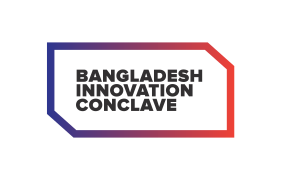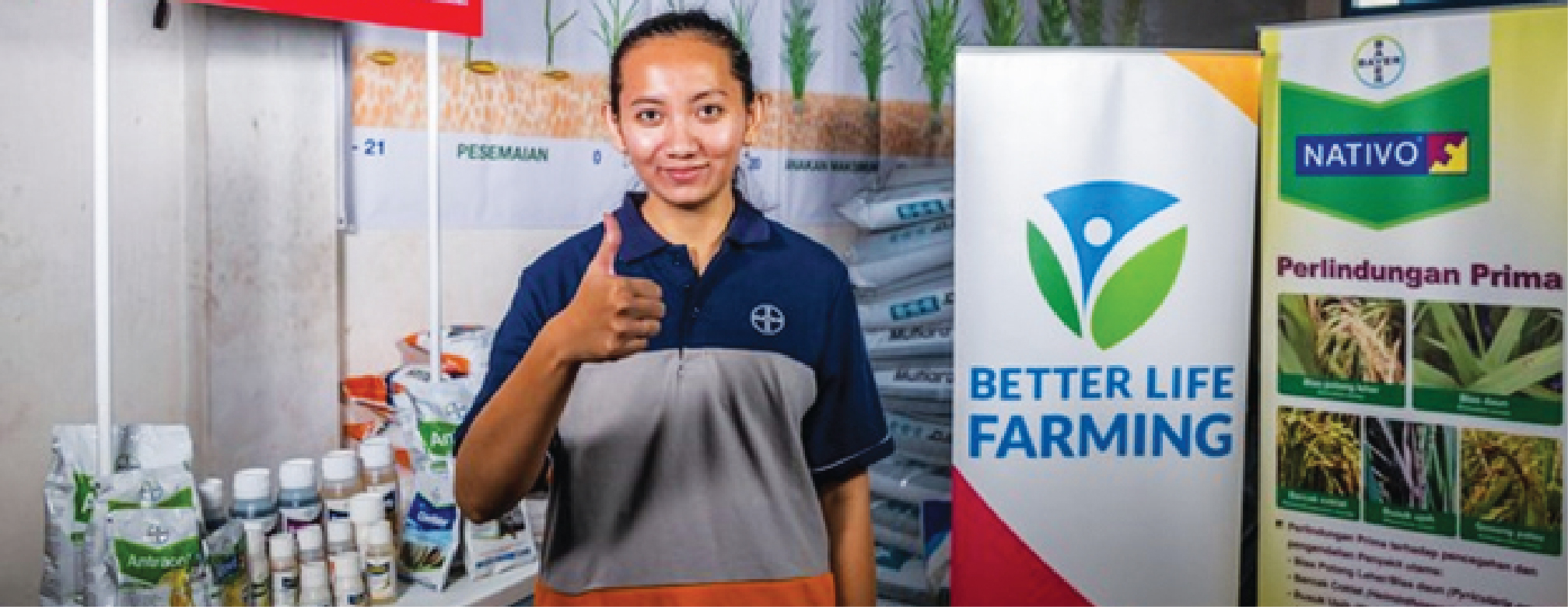Category : Best Innovation in Agriculture
HONORABLE MENTION
Innovation Title : Better Life Farming
Organization : Bayer CropScience Limited, Bangladesh
Background
The Better Life Farming Alliance (BLFA) is a global multi-stakeholder partnership that operates the ‘Better Life Farming’ (BLF) initiative. Launched on 24 November 2020, the BLFA is bringing together powerful partners in Bangladesh: Bayer with its expertise in seeds, crop protection, and agronomy; International Finance Corporation (IFC), the global development finance institution for impact assessment; and ACI to create awareness about balanced crop nutrition, soil health and precision irrigation with an overall objective to support Bangladeshi smallholder farmers to increase crop yields and farm incomes. On the ground, the alliance’s agri-entrepreneurship model functions through BLF Centers run by local agri-entrepreneurs. Moreover, the BLFA pursues a gender-smart approach by promoting women agri-entrepreneurs to serve women smallholder farmers and is designed to empower rural youth to be a part of the agri value chain and generate additional employment opportunities. In 2021, over 260 BLF Centers were set up across Bangladesh and 9 of them are run by women agrientrepreneurs which covers 5000 farmers in this service and 1.5 K are female. By 2025, the aim is to scale up to 500 BLF centers to help 0.25 million smallholder farmers in Bangladesh.
Objectives
The Better Life Farming Alliance is working with smallholder farmers to empower them to reach their full farming potential and foster reliable growth for their businesses, communities, and livelihoods. Therefore, it aims to empower smallholder farmers to become self-sufficient. Together with public, private and local partners, it provides solutions that meet the needs across the entire value chain to help them increase their productivity and to make farming a reliable and attractive business that leads to a stable income and in turn to a better life. The initiative‘s objectives are to enhance access, create market linkage, and provide the right agronomy advisory through the BLF Centers to enhance crop yields and enhance farmers’ income. Additonally, the BLF alliance pursues a gender-smart approach in the country by promoting women agri-entrepreneurs to serve women, smallholder farmers.
The Idea
The ‘Better Life Farming’ alliance aims to help ensure more safe, nutritious and affordable food for the growing world population, advancing the United Nations Sustainable Development Goal of ‘ending hunger, achieving food security and improved nutrition, and promoting sustainable agriculture.’ The efficient use of available resources, such as water, fertilizer, and energy, will empower growers to produce higher quality crops, generate higher incomes, and make farming attractive for future generations so that rural communities can prosper.
Execution
The “Better Life Farming Centers” are run by rural agri-entrepreneurs who enable knowledge and technology transfer on good agricultural practices and deliver services such as market linkages, access to agri-inputs and crop advisory. Each BLF center covers a group of 500 farmers from five to six nearby villages and serves as a mini-collection center from where off-takers can collect agricultural produce. In 2021, over 260 BLF Centers were set up across Bangladesh, 9 of them run by women agri- entrepreneurs, covering 5000 farmers in this service and 1.5 K is female. By 2030, Bayer is committed to helping more than 100 million smallholder farmers in developing countries as part of its global sustainability commitments.
Results and Impact
1. Rural job creation and empowering women: Each BLF Center creates new rural employment opportunities. Currently, there are over 300 Agri-entrepreneurs across Bangladesh of which almost 10% are women, generating around 2,000 USD annual revenue per Agri-entrepreneur.
2. Higher yields and profits for farmers: BLF creates an ecosystem that enables hundreds of thousands of smallholders to build commercially viable and sustainable farming businesses. It enabled last-mile delivery, created price transparency in the marketplace, increased the bargaining power of smallholders and promoted clusters of rural agri-entrepreneurs that aided in doubling yields and almost tripled incomes, respectively.
3. Reducing the environmental footprint: By providing access to the appropriate products and GAP teachings, environmental damages and soil degradation resulting from the incorrect use of fertilizers and crop protection products have been minimized, if not avoided.
4. Improving food security and waste management: BLF optimizes the use of natural resources and actively reduces overall food spoilage. Training farmers on good water management practices, including micro-irrigation, helped reduce consumption of water to up 70%, in rice. In addition, BLF trains farmers on the correct usage of fertilizers and crop protection.


